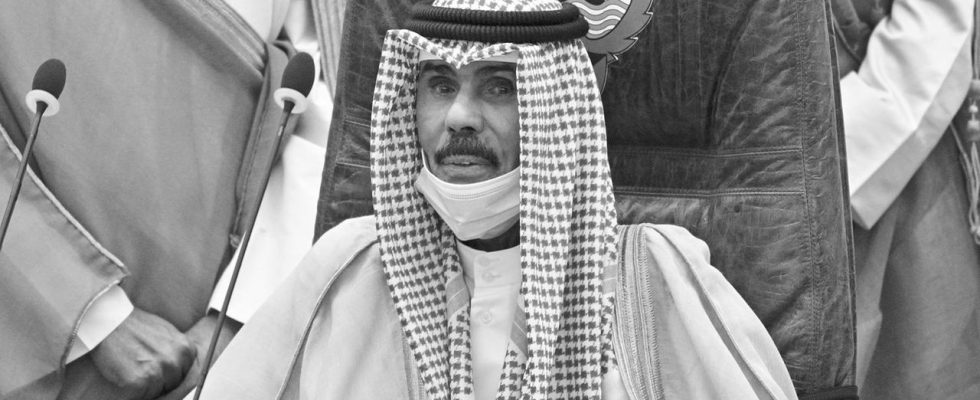The ruler of the Gulf state of Kuwait is dead. According to the palace, Sheikh Nawaf died at the age of 86. Shortly afterwards, the 83-year-old Crown Prince Sheikh Mischal was appointed Emir as his successor.
Sheikh Nawaf al-Ahmad al-Sabah has died at the age of 86. A palace statement carried by Kuwaiti state television said the announcement of his death came with “great sadness and pain.” State television interrupted regular programming and broadcast recited verses from the Koran.
A cause of death was not reported. According to the state news agency Kuna, Sheikh Nawaf was admitted to hospital in November due to an “emergency”. State media had previously reported that he traveled to the United States in March 2021 for medical examinations.
Power remains in the hands of the ruling family
The previous crown prince, Sheikh Mischal al-Ahmad al-Sabah, was appointed as his successor shortly after the late sheikh’s death. He is a half-brother of Nawaf – and at 83 years old was considered the oldest crown prince in the world. In Kuwait, power lies largely in the hands of the al-Sabah ruling family.
Sheikh Nawaf had been ruler of the oil-rich Gulf state for three years. In 2016, he was appointed crown prince by his then-ruling half-brother Sabah al-Ahmad Al-Sabah. After taking office in September 2020, the emir led the country through an economic crisis caused by the collapse in oil prices.
Rich country with high expenses
During his time as ruler, Sheikh Nawaf focused on domestic issues. This included, among other things, a reform of the Kuwaiti social system, which prevented the sheikdom from having to take on debt. Despite the immense wealth that the country generates through its oil reserves, there was little money left in the coffers to pay the bloated salaries in the public sector.
Kuwait has around 4.2 million inhabitants and has the sixth largest oil reserves in the world. The country has been a close US ally since the 1991 Gulf War, in which Iraqi occupying forces were driven out by Saddam Hussein. Around 13,500 American soldiers are stationed in Kuwait.
Strength People’s representation in the Gulf state
In 1962, the country was the first Arab Gulf state to introduce a parliamentary system. The popular representation in the country is more powerful than in any other Gulf state. Kuwaiti women have had the right to vote and stand for election since 2005. Recently, however, political disputes between elected representatives and palace-appointed ministers have led to political turbulence, which has also deterred foreign investors.
Anna Osius, ARD Cairo, tagesschau, December 16, 2023 1:28 p.m

